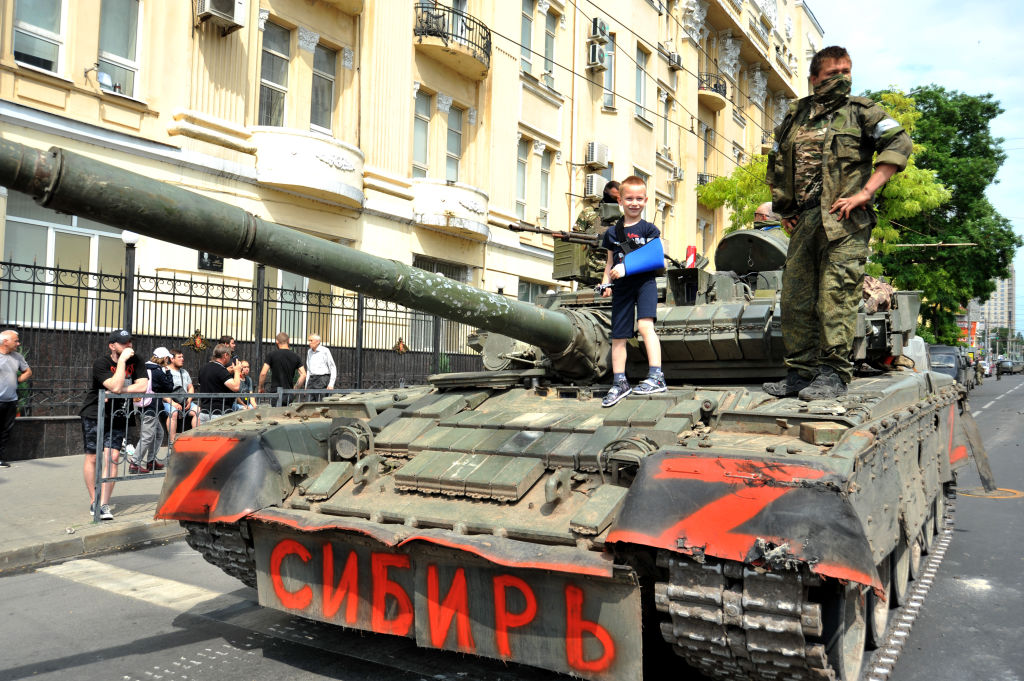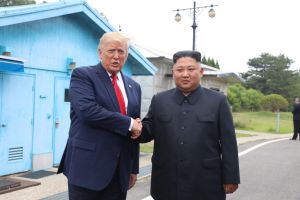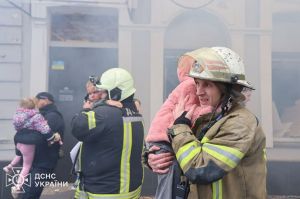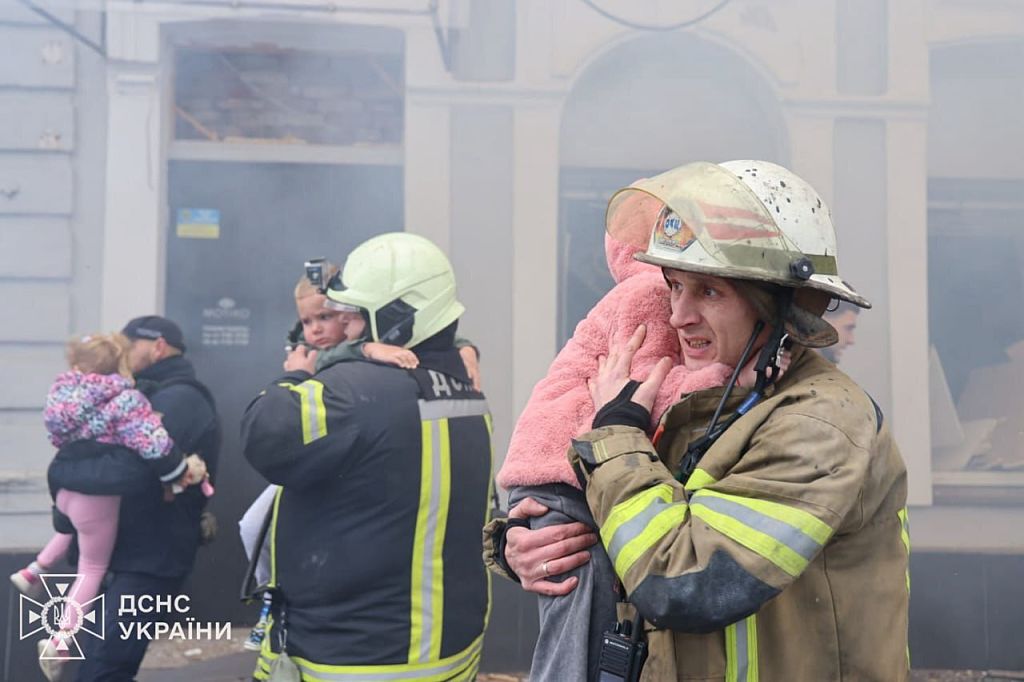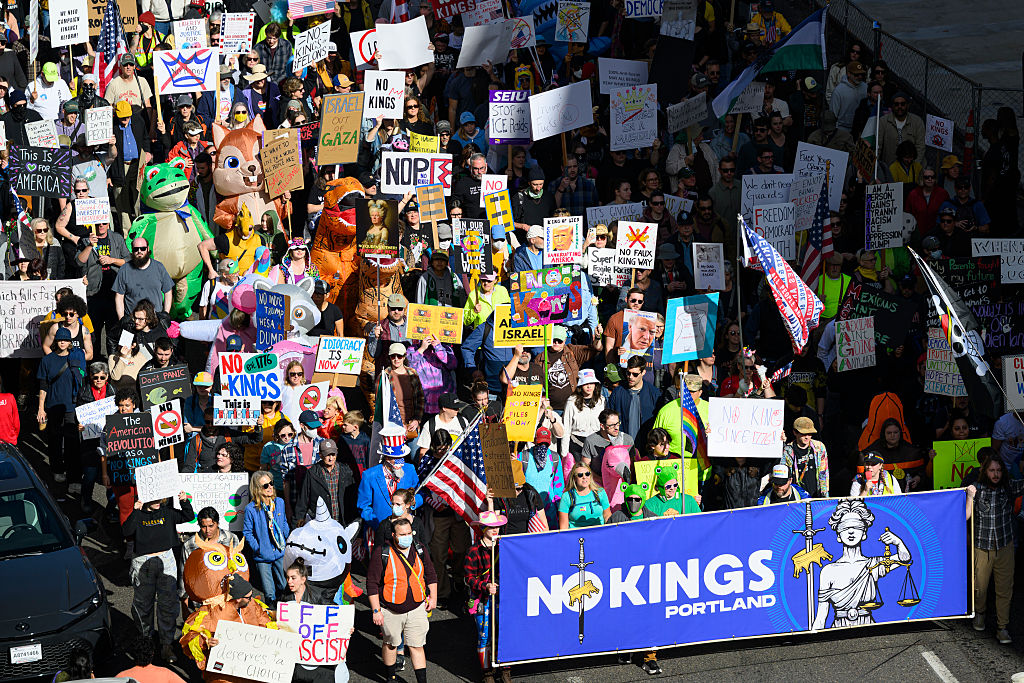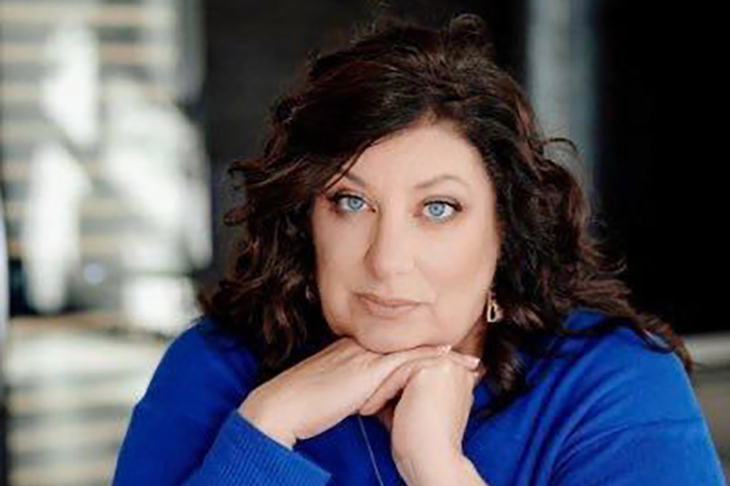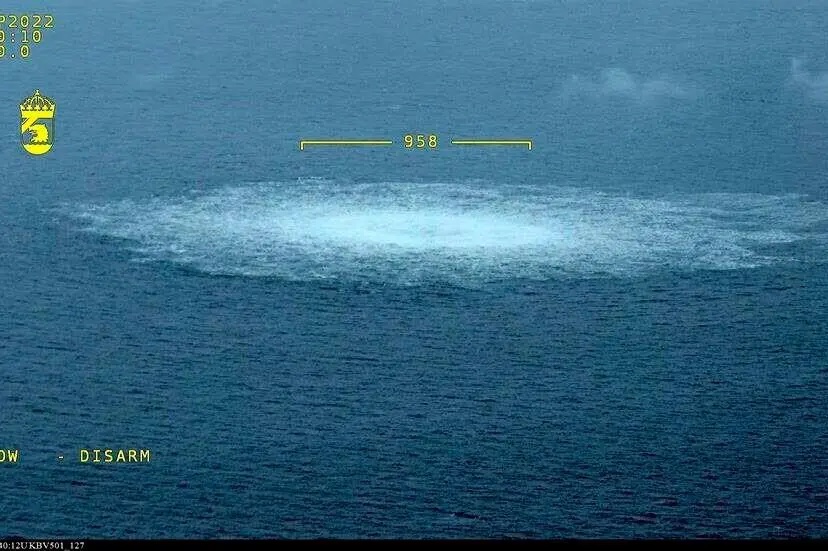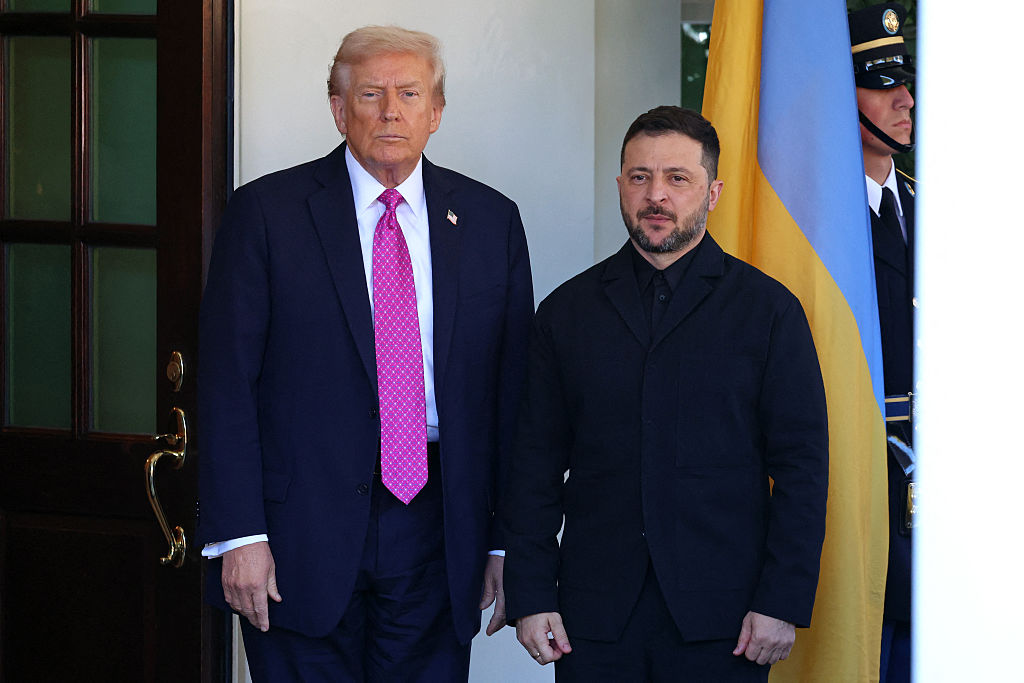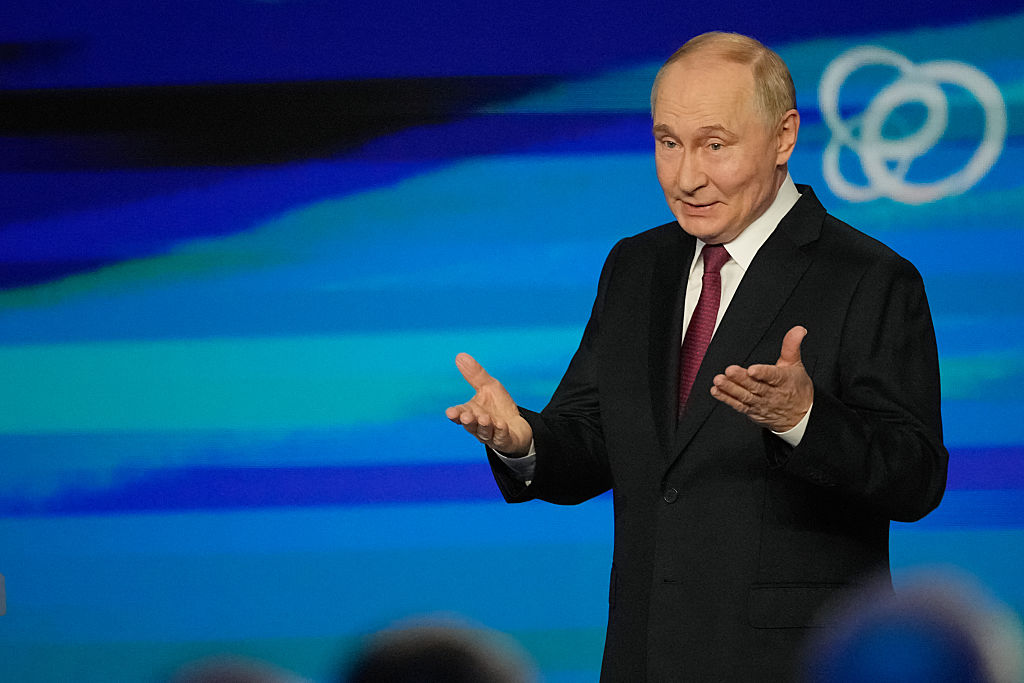Up until this point, it was possible to believe that Putin was tolerating, or even orchestrating Yevgeny Prigozhin’s increasingly outspoken attacks on the military leadership and “the elites” in Moscow. Vladimir Putin himself didn’t seem especially pleased with his generals. Only a few days ago, he turned his back on his defense minister, Sergei Shoigu, at a ceremony to give medals to injured soldiers. The fact that this was broadcast on state television makes it all the more likely that this was a deliberate, icy snub. Putin is said to like to pit his subordinates against one another, the better to stop an obvious successor from emerging. But Prigozhin’s attacks on the military leadership have slowly but steadily turned into attacks on Putin as well.
Prigozhin was once a petty thief and served time in jail. He then reinvented himself as the Kremlin’s caterer of choice — “Putin’s chef” — and then again as the man running perhaps the world’s most notorious mercenary force, the Wagner Group. He was allowed to empty Russia’s prisons for recruits to join the Wagner Group’s war effort in Ukraine — a role that brought him into conflict with the Ministry of Defense, among others. The power struggle with the generals spilled out into the open during the costly war of attrition for the Ukrainian town of Bakhmut. Prigozhin accused the high command of deliberately starving Wagner of ammunition, naming the defense minister, Shoigu, and the chief of the general staff, Valery Gerasimov, as the guilty men. He called it an “an attempt to destroy PMC Wagner equal to treason” and, to make his point, he posted a stark video of dozens of his men’s corpses piled up on the frozen ground. “Those who interfere with us… absolutely, directly work for the enemy, helping the enemy break Russia’s back.”
These statements were so blunt, so at odds with the official narrative of the war on state media, it appeared that Putin must be supporting Prigozhin’s attacks on the top brass. After all, criticizing the war effort is illegal in Russia. But really, with hindsight, Prigozhin sounded desperate: “Shit is boiling, blood is bubbling, but all the questions I raised about ammunition stay completely unresolved… everything is sinking and sticking. No decisions are being made…” He said he was told: “You need to apologize and obey and then your fighters will receive ammo.”
For a time, Prigozhin was humbled. Some of his statements as the battle for Bakhmut ground on were emollient, almost groveling. And he did get some more ammunition, but not nearly enough, he said. Finally, last month, Bakhmut fell — at a cost, Prigozhin said, of 20,000 of his men’s lives. He attacked Russia’s elite: “You sons of bitches. Gather up your offspring and send them to war. And when you go to their funerals, when you start to bury them, then people will say: Now everything is fair.”
Even this might have been licenced criticism. Perhaps Prigozhin was trying to step into the role left by the death last year of the far-right politician Vladimir Zhirinovsky: the ultranationalist rabble rouser who makes Putin seem reasonable by comparison. In assessing Prigozhin’s words and actions, it’s important to remember that — as well as leading a mercenary army — he was also the man behind the St. Petersburg internet “troll” factory that tried to influence the 2016 US presidential election. In 2016, the troll factory sometimes argued on both sides of a question, putting out a propaganda story and then — bafflingly — more propaganda to say the first story wasn’t true. The aim was to sow confusion. This is the “post-truth’ strategy pioneered by the Kremlin’s “puppet-master,” Vladislav Surkov, who is said to have been the troll factory’s — and Prigozhin’s — boss in the Kremlin. In post-truth Russia, Prigozhin’s attacks on the conduct of the war served to build up his credibility as an opponent of the government — but one that Putin could still control.
Until he couldn’t. Prigozhin began to criticize not only the conduct of the war but the whole strategy. In one video he made after the fall of Bakhmut, he reminded everyone that the rationale for the war had been to “denazify and demilitarize” Ukraine. “Fuck knows how, but we have militarized Ukraine.” He said that defeat in the war — or even a victory at too great a cost — might end up with soldiers and their families coming to Moscow and impaling the elites on pitchforks: “revolution, like in 1917.” (Of course, he would pursue only legal means, he added.) On Friday, Prigozhin even denied that Ukraine had been the aggressor — another rationale for the war advanced by Putin — saying instead that the oligarchs and the elites had instigated the conflict so they could plunder Ukraine. In yet another video, a few weeks ago, Prigozhin asked, obliquely: “What if it turns out that grandfather is a real asshole?” Some took that as a reference to Putin himself.
Does this mean his march on Moscow was a long-planned coup? Not necessarily. Prigozhin’s enemies in the military leadership had been progressively backing him into a corner. Two weeks ago, they issued a decree ordering all Wagner Group personnel to terminate their contracts and join the regular military. That would have been the end of Prigozhin’s army, and probably of Prigozhin himself. Other enemies were already circling. A former MI6 officer, who now runs a private intelligence firm in London, told me he had information that several oligarchs “personally very close to Putin” had vowed to kill Prigozhin. The Kremlin elite spoke of “little else” but the “Prigozhin problem,” he said: they thought he had become too powerful and too greedy. “Various plans” had been developed. The plotters were “just waiting for the right time to strike.”
A former MI6 officer told me he had information that several oligarchs ‘personally very close to Putin’ had vowed to kill Prigozhin
Such claims cannot automatically be dismissed as fantasy, given the many Russian officials and businessmen who have fallen from windows since the invasion of Ukraine. Regardless of any supposed plot to kill him, Prigozhin may have felt he had no alternative but to march on Rostov-on-Don. If his men go on to Moscow, this might not be the result of a slowly maturing plan, just an unspooling of events now out of anyone’s control. It seemed like a desperate gamble. He had — by his own count — just 25,000 men. Putin can call on hundreds of thousands of well-armed men in the state’s security forces.
Wagner traditionally recruits from a pool of experienced military officers, who presumably still have contacts among their old comrades. Social media accounts linked to Wagner claim that regular army units surrendered without firing a shot. A video posted to Twitter shows the citizens of Rostov-on-Don greeting Wagner soldiers with food and bottled water — surely a worrying sign for the Kremlin. Because the war has been so incompetently prosecuted, many Russians will agree with Prigozhin’s story that the soldiers at the front, and the war itself, have been betrayed by those at the top.
Prigozhin speaks directly to these people through the huge social media following he has built for Wagner and its exploits on the battlefield. Prigozhin’s constituency is what Ian Garner calls “Generation Z.” He’s written a book of that title about what he estimates is the quarter of Russians who actively support the war. Generation Z believe, for instance, that traitors have hobbled Russia with Western notions of human rights. “They’re the things holding us back. We’re going to save the world. We’re going to save Russia and Russian-ness. And we will trample over anything to do this. And as if it means killing Ukrainians to save Ukrainians so be it… there is an embrace of ‘We’re the bad guys and we don’t care.’”
Prigozhin invoked 1917 in his speech after Bakhmut fell; Putin, too, spoke about 1917, saying that Russia’s “victory” in Ukraine would be jeopardized by disunity at home. “This is exactly the kind of blow that was dealt to Russia in 1917, when the country was fighting World War One. But her victory was stolen [by] intrigues, quarrels, politicking behind the back of the army…” This seemed an odd comparison to make. After all, in 1917, the czar — out of touch behind the Kremlin’s high walls — did not realize how unpopular his war had made him and did not think it possible he could lose his throne to a mere rabble.
This article was originally published on The Spectator’s UK website.



